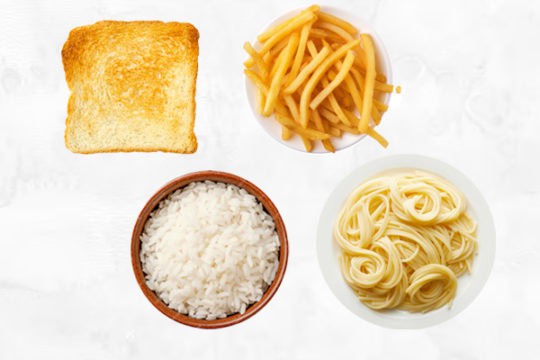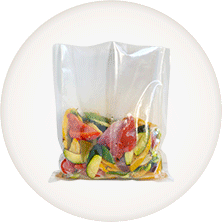Control your blood sugar with low carb meals
delivered to your door
Everywhere in Switzerland and Liechtenstein
Discover
Nutritional principles of diabetic food
1 dish to control blood sugar, 400g
- 350-450 Kcal
- 10-20g Net carbs (carbs minus fibre)
- 3-6g Dietary fibre
- 15-25g Fat (of which 2-5g saturated)
- Added salt 1g
How it works?
Control your blood sugar and eat well with pleasure
Choose your meals
varied and balanced
Our chefs cook fresh
with seasonal ingredients
Delivery Swiss-wide
With SwissPost in a cold chain box
Ready to enjoy in minutes
Warm up in microwave, oven or bain marie

Recommended foods for blood sugar control
- Vegetables and pulses
- Wholegrain cereals
- Lean meat and fish
- Healthy fats: olive oil, canola oil, coconut milk
- Grains and nuts

Diabetes food should not include
- Refined carbohydrates: white bread, white rice, pasta
- Fried foods, such as potato chips
- Salty and sweet snacks
- Fruit juices
Flexible plans to support your diabetic diet
Low carb meals
Poultry, meat or fish with vegetables
Repas vegans
Pulses or soya as a source of protein
Mix & Match
Proteins, side dishes, soups, drinks and breakfasts
Controlling blood sugar and eating well with pleasure
Aurelia Corbaz - Allcook nutritionist partner, works at practices EquYlibre integrative medicine centre, Yverdon-les-Bains.- ‘Epicurean, dynamic and curious, I see food as an infinite playground, combining taste, health and pleasure’.


- ‘I'm delighted with the collaboration with Aurélia, who helps to complement te art of eating pleasure with nutritional science’.
Meals cooked to perfection to delight your taste buds
Nutrients are preserved by gentle cooking and vacuum packaging

Perfectly cooked ingredients

Cooking control with rapid cooling

Packaged in compostable vacuum bags

Shipped in cold chain boxen Suisse
Frequently asked questions
You can make a one-off purchase of the low-carb meals that will help you control your blood glucose levels. You can try it out to see if it works for you and decide later if you want to buy it occasionally or become a subscriber.
The use-by date is stated on the packaging. Meals are kept fresh in the refrigerator for 5 to 7 days after delivery. We recommend that you enjoy your meals within the first few days after delivery. If you cannot finish your meals before the use-by date, you can store them in the freezer. It is important to defrost them slowly in your fridge to preserve their quality. Quick defrosting in the microwave or at room temperature will ruin the chef’s work.
Diabetic nutrition focuses on managing blood sugar levels while ensuring a balanced and enjoyable diet. Recommended intake varies according to individual needs, but here are the general recommendations for daily nutrient intake, in grams, for adults:
Breakdown of macronutrients
- Carbohydrates
- Aim for 45 to 60 grams per meal (or 130 to 200 grams per day depending on activity level and medical advice).
- Favour complex carbohydrates such as wholegrain cereals, pulses and vegetables.
- Protein
- Approximately 1 to 1.5 grams per kilogram of body weight (for example, 60 to 90 grams per day for a 60 kg person).
- Choose lean proteins such as chicken, fish, tofu, eggs and pulses.
- Fats
- Total fat: 50-70 grams/day (i.e. around 20-35% of total calories).
- Saturated fats: Less than 10 grams a day.
- Choose the healthy fats found in avocados, nuts, seeds and olive oil.
- Fibre
- At least 25 to 30 grams a day.
- Sources include fruit (with skin), vegetables, pulses and wholegrain cereals.
Additional information
- Sugar: Limit added sugars to less than 25 grams a day or as recommended by a health professional.
- Salt: Sodium intake should be less than 2,300 mg/day (or lower if advised).
- Monitoring: Work with a registered dietician to adapt these recommendations to your personal glycaemic reactions.
A low-carb diet is one that limits carbohydrate consumption to less than 130g per day. It mainly restricts the poor-quality carbohydrates contained in sugary, refined and industrial foods. It favours healthy sources of carbohydrates: fruit, vegetables, wholegrain cereals and pulses, which are rich in fibre and protein. For people with type 2 diabetes, this helps to reduce HbA1c levels and blood lipids such as triglycerides and cholesterol. For non-diabetics, weight loss can reduce the risk of developing type 2 diabetes.
The aim is to achieve ketosis. Ketosis is a metabolic state that forces cells to break down fats instead of carbohydrates as the body’s main source of energy. This type of diet can lead to a state of fasting and allows one to lose weight.
A low-carb diet includes only healthy carbs, protein and fats, preventing glucose spikes in your blood.
A sudden and significant reduction in carbohydrate intake can lead to short-term side effects, such as
- Constipation
- Headaches
- Increased consumption of saturated fats, which can lead to heart problems.
To avoid constipation, opt for wholegrain cereals and vegetables.
It’s important to choose your protein and fat sources carefully to minimise saturated fats:
Preferable proteins: fish, prawns, eggs. Limit beef, lamb, veal or pork to once a week.
Favour healthy fats: avocado, vegetable oils.
